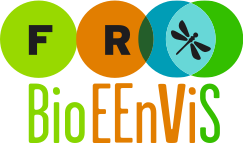Integration of animal movement into wildlife-vehicle collision models
Résumé
Road networks have major ecological impacts on living organisms consequent to habitat loss and fragmentation, chemical and acoustic pollution, and direct mortality when wildlife-vehicle collisions are involved (WVC). The many past empirical studies revealed major variables accounting for WVC incidence (e.g., population density). Similarly, spatial locations of WVC hot-spots are associated to landscape features at large spatial scales, and to road characteristics at small spatial scales. Yet, we currently lack a comprehensive theoretical framework for WVC. Animal movement in relation to habitats is likely an essential driver of encounters with roads, but this remains largely ignored in most studies. Movement ecology now provides the necessary tools to investigate the impact of animal movement on WVC. We built a general individual-based model incorporating recent knowledge in movement ecology (movement typology: roaming, migratory route crossing a road, active attraction and active repulsion of roads) to estimate WVC risks. We explored the relative effects of animal and vehicle move- ment parameters (speed, abundance, road sinuosity and animal movement pattern) on collision probability. We show that animal behavior toward roads has major impacts on the number and risks of WVC, but also modulate the effects of other factors (animal speed, species local abundance, road traffic volume) on WVC. Sensitivity analyses show that the movement and behavior of the animal has more influence on WVC risks than any of the characteristics of roads and vehicles we tested. Our results suggest that empirical studies of WVC should incorporate knowledge about the behavioral habits of the focal species in relation to roads.
Origine : Fichiers produits par l'(les) auteur(s)
